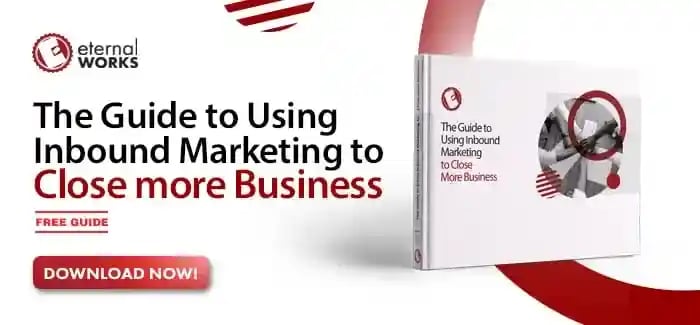Businesses must stay on the cutting edge of marketing to stay afloat or foster accelerated growth. This means they have to adopt efficient marketing strategies. Inbound lead management is a business strategy that attracts customers by providing relevant content and experiences. While outbound marketing inundates your audience with information they don't always want, inbound lead management creates relationships and solves problems your audience already has.
Inbound lead management, in essence, is based on the principle of buyer-driven sales rather than product-driven sales. Customers, in plain terms, want what they want when they want it. Inbound marketing is all about valuing and empowering prospects to reach their goals at any stage of their journey with you. Inbound marketing goes beyond solving customer pain points with product solutions. It is also efficient because when your customers succeed, you succeed.
How Can You Benefit From Inbound Lead Management?
Inbound lead management enhances the likelihood of developing recurring clients who will recommend your services to their social networks, increasing the potential to close more deals. There are three ways to employ the inbound strategy:
Attract: Drawing the right prospects by providing valuable content and engaging in conversations that position you as a trustworthy advisor they want to work with.
Engage: Presenting insights and solutions relevant to their pain points and objectives, increasing their chances of purchasing from you.
Delight: Helping and supporting your consumers to ensure their transaction is a success.
Inbound lead management presents a range of benefits. Four of the most important benefits are explained below.
1. Better-Educated and More-Informed Customers
It's a fact that consumers behave differently in this new internet age. Buyers are now researchers, seeking out specific solutions to problems or strategies that meet their requirements. They have access to a wealth of information and do not require the assistance of a salesperson to determine where they should spend their cash.
The internet, after all, is a two-way street. You must provide something in exchange for a user to engage with your organization and become a customer. You must supply value, including all the knowledge and direction customers may require to find a solution to their problems.
Customers are less likely to be disappointed after a purchase if they know what they're getting and why. Furthermore, clients who are well informed about your product or service are more likely to recommend it to other prospective customers.
2. Fewer Touches/Less Follow Up Needed
There aren't enough hours in the day for many of us. Therefore, one benefit that marketing teams should appreciate is inbound marketing's ability to save time! Marketing automation technologies (software that automates repetitive operations) such as CRMs allow your team to focus on more important duties like nurturing leads, closing sales, and developing more engaging content to attract more visitors.
You'll spend less time addressing questions later in the sales process if you provide detailed education in advance. When you engage with well-informed leads, you can focus more of your sales campaign on demonstrating the benefits of buying your product. After purchasing, informed shoppers will also need less customer service assistance.
You should also require fewer touches and follow-ups at each sales cycle stage if you use an inbound marketing lead management strategy.
3. Shortened Sales Cycle
A well-thought-out sales process, from prospect engagement to contract signing or purchase, is like putting the perfect bait on the hook so that when the fish bites, there's robust engagement, and you can start reeling in your catch.
Shortening the sales cycle and making it more predictable has several practical benefits, including better profitability, greater stability, reduced risk, and faster growth. But don't presume your buyers are driving your sales cycle. Sales, like fishing, is a process, and you're a part of it. Inbound lead generation helps you pay attention to what your potential customers are telling you, control your sales process, and ultimately shorten your sales cycle.
Unlike outbound lead management, which assumes that every prospect is at the same point of the sales cycle, therefore treating hot leads the same as warm or cold leads, inbound lead management adjusts the pace of your marketing to the preparedness of your potential customers. This effectively accelerates the sales cycle.
4. Less Churn or Buyer Regret
Customer churn refers to the rate at which consumers who buy or subscribe to your product or service discontinue their relationship with you and stop bringing in revenue. Customer churn is frequently caused by a lack of a good product/market fit, highlighting the importance of close sales and customer alignment.
The inbound lead management philosophy's central principle is ensuring a near-cosmic alignment between your service and your clients. Inbound lead management aims to create a more unified conversation between your organization, prospects, leads, and customers. When a company and its clients are all on the same page, doing business becomes much more fun.
As inbound lead management educates the customer well in advance and personalizes their shopping experience, customers are much less likely to be dissatisfied—hence less churn. In essence, customers know what they are getting. Inbound lead management can be a powerful strategy when combined with customer analytics tools to track churn rates. With less buyer regret or turnover, you will enhance your company's reputation and reel in more loyal customers.
Key Takeaways
By implementing good inbound lead management, you can get:
- Satisfied customers, as their expectations became a reality.
- Empowered customers who promote your products or services to other prospects.
- Shorter sales cycles.
- Less churn and buyer regret.
Contact us today or download the Guide to Using Inbound Marketing to Close More Business.



